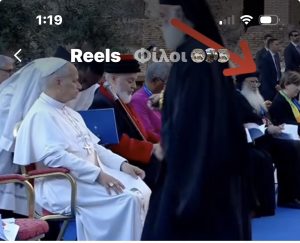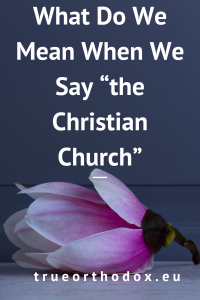Understand Their “Cure-all”…

And the people bowed and prayed
To the neon god they made
Excerpts from an exclusive email interview with the new General Secretary for OCP News Service.
The conclusions are your own. The WCC as a cure to everything (but as a poison to the soul)!
Geneva-Switzerland- Rev. Prof. Dr Ioan Sauca, was appointed Interim General Secretary of the World Council of Churches (WCC).
OCP: What is your plan of vision as you lead the WCC until the Central Committee meets in June 2021?
Dr Sauca: I will do my best to ensure, until the election of a new general secretary, that our ecumenical boat advances through the challenging waves of our present times and that we continue preparing for a good assembly which will give direction to the future ecumenical movement.
Dr Sauca: From the beginning of the pandemic, the leadership of the Central Committee guided our response. You have seen the pastoral letters from the moderator of the Central Committee encouraging the churches to implement the measures needed to protect lives, especially for the most vulnerable.
During all this period, the WCC online publications have been resourcing the fellowship with prayers, reliable information, new publications and webinars.
Already in February, we established a COVID Support Team to help churches address the pandemic and the related issues of health and healing; sexual and gender-based violence; diakonal service; the needs of children and young people; and the joy of our common faith in the resurrected Christ.
Together with regional ecumenical organizations, we issued a statement encouraging churches “to adapt our modes of worship and fellowship to the needs of this time of pandemic infection, in order to avoid the risk of becoming sources of viral transmission rather than means of grace.”
In preparation for Holy Week, the WCC assisted the World Health Organization (WHO) in establishing “Practical considerations and recommendations for religious leaders and faith-based communities in the context of COVID-19.” We implemented a ‘Thursdays in Black ambassadors’ campaign to address the increased risk of sexual and gender-based violence and vulnerability of children.
The pandemic reminds us that church leaders have a critical role to play in their communities and in society in helping people understand why change is needed and how, as people of faith, we can adapt.
OCP: As the director at Ecumenical Institute in Bossey, you had a long tenure of over two decades. What was the single most achievement at the Institute?
Dr Sauca: The WCC’s Ecumenical Institute was inaugurated in 1946 at the scenic Château de Bossey, on Lake Geneva. It draws students from churches within and outside the WCC and enables direct contact with people of different faiths each year.
Bossey is indeed a place which transforms lives. Our alumni are today all over the world and hold important key positions in their churches, universities, societies. Bossey has become a brand, a success story in the ecumenical movement, a place of unique relevance among other institutions in the world.
Dr Sauca: Since the COVID-19 pandemic outbreak we have seen a huge increase in the number of people following and engaging with the WCC through various channels.
The daily prayer seems to be particularly appreciated because people seek comfort and peace at this difficult time.
The WCC main website www.oikoumene.org has experienced a significant increase in its overall attendance in the first 6 months of 2020, compared with the same period in 2019: 43 per cent more users and 38 per cent more visits.







Not my favorite organization for sure!